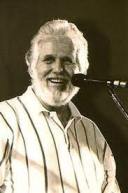When I wrote my dissertation, I had the joy of flying here and there to meet with Christian therapists who formed counseling centers associated with churches. One woman in Chicago was having an awkward time talking about how church life integrated with her professional life. She hadn’t shared very much about how her faith informed her psychotherapy and she hadn’t heard much about what her colleagues thought about it. She sheepishly admitted, “I pray for my clients every day. Do you think that is OK?”

What do you think? Is it OK?
As a client, you may need to talk this over with your therapist, if you want your faith taken seriously. Maybe they don’t pray for you. You may also need to talk to them if that’s an area you did not expect to be a part of therapy, or you don’t want it to be, or you can’t trust them with it. The integration of Christianity/spirituality and psychotherapy is not clear for many people, some therapists included.
This has only happened once, but it did happen when a couple came in for marriage counseling. It was apparent the husband was not feeling it. Arms crossed. Short answers to begin with. But we seemed to be getting somewhere. We made another appointment. But the wife called me the next day and said, “He looked at your website and it looks like you are Christians. He can’t handle that. Thanks anyway.” I still think about that. Circle Counseling is a means for many churches to do the work of healing. But some will not be able to handle the thought that I might be praying for them!
Honestly, given the reputation of Christians these days, I might feel like that man who never came back — I mean, the Russian Orthodox Church is sponsoring a war right now! The MCC Rep for Korea gave an amazing report the other night about our peacemaking efforts there; but he had to note how the South Korean churches are dominated more by capitalism, nationalism and anticommunism than they are patiently and deliberately fermenting the hearts and minds of people into new wine. Christian psychotherapists don’t always know what they are doing either. Even though the guild guidelines include competency in spirituality these days, the teachers seem to sideline it more and more. I think many therapists leave their faith outside the door to their office.
We are healers
Various conversations about prayer and counseling made me want to clarify what I think I am doing. I realized I have an assumption that has kind of been hidden, since I am concerned about people who might walk out of my office at the least hint of Jesus. (That happened once in ten years, and I have not forgotten!). I may not advertise the “contemptible” name Christian, too much but I definitely am a healer in the name of Jesus.
Some people do not think psychotherapy “qualifies” as a healing profession. That’s for actual doctors. I admit I was concerned I might be asked what kind of healing profession I was in when I dashed over to the convention center with all the other health workers to get the vaccine when it first came out. I was afraid I might get a “You are not what we meant” look. But as the mental health crisis deepens in the U.S. I believe, more than ever, we need Jesus to heal us, heart, soul, mind and body.
 Back in the 80’s our community took a field trip to the first Vineyard church, led by John Wimber. His congregation separated from Calvary Chapel when they took the call to follow Jesus literally and reluctantly decided that call meant healing people like Jesus did. This conviction was not new at all in the history of the church, but it seemed new to them. After a lot of failure, a woman was healed, much to Wimber’s surprise. He was in the act of explaining to her husband why not all people are healed but the husband was looking over his shoulder at his wife getting out of bed! An outbreak of healings and other experiences with the Spirit followed. The population of the church boomed. Wimber called their new ministry “power evangelism” – people came to faith because they encountered the living God.
Back in the 80’s our community took a field trip to the first Vineyard church, led by John Wimber. His congregation separated from Calvary Chapel when they took the call to follow Jesus literally and reluctantly decided that call meant healing people like Jesus did. This conviction was not new at all in the history of the church, but it seemed new to them. After a lot of failure, a woman was healed, much to Wimber’s surprise. He was in the act of explaining to her husband why not all people are healed but the husband was looking over his shoulder at his wife getting out of bed! An outbreak of healings and other experiences with the Spirit followed. The population of the church boomed. Wimber called their new ministry “power evangelism” – people came to faith because they encountered the living God.
The first disciples described in Acts demonstrate the same conviction. I think all Jesus followers have a part to play in healing individuals, societies and the creation. “Power evangelism” is an improvement over “God is not answering the phone anymore;” but it also strikes me as the kind of thing an American would invent and package. Americans tend to think power is their birthright or their birthright has been stolen, one or the other. And don’t get me wrong, I think encountering the Spirit among the people of God in Yorba Linda is great. But Jesus did a lot more work in a hidden way than as a rally leader. He was fermenting new wine more than just crushing grapes.
Hidden spiritual work
Another therapist I interviewed in California during my research had a Bible on her office table and told me she usually prayed with her clients. I was surprised! I was so circumspect, myself, a person would have to go to the website to find out I was a Christian before they asked me. And many people never find out. I don’t think they need to deal with whatever the Bible symbolizes to them or whatever a white, Christian, male might symbolize to them before we get there.
But I do pray for them. As a Jesus follower, it might be malpractice for me not to pray for my clients! I don’t remember ever praying with one. But I can’t help praying for them. I come with the One who comes with “healing in his wings.”
My work, like the ministry most Jesus followers do, is more along the lines of Matthew 6:6: “But when you pray, go into your room, close the door and pray to your Father, who is unseen. Then your Father, who sees what is done in secret, will reward you.” There is a “hiddenness” to the work of the Spirit. Like it is often said, the work of the Spirit is like salt in your dinner, or yeast in your bread dough, or a breeze coming on you when you sit on your stoop in August, entering in and invisibly changing things.
Healing is more patiently, deliberately fermenting; it is much more about love than power. The church and the counseling center are crucial vehicles for the transformation of the individuals and the whole world but Jesus does the healing. We never see just exactly how he does it.

When I am with clients, my prayer is less like an event and more like a presence. I am a living prayer. I am the presence of God’s love. Another interviewee in my research project was not sure what would happen to her if she revealed to her colleagues how she loved her clients. “How could I not?” she asked. I can’t help it, either. And why, in Jesus’s name, would I? As they enter and as they leave (or after I click them in and out of Zoom!), I intercede for them. Sometimes I wake up in the night and feel like praying some more. God is healing all the time. The unceasing prayer I embody is part of the Sprit’s work.
I’ve never had anyone ask me to pray for them. I hope that is because they get the idea what we do is not about me. It’s not about my special prayer. Not about my power. They have access to whatever power they need. The Spirit of God is with them and for them just as I am with God and I am with them and for them. If they did ask me to pray before they left (after they visited the website, I guess), I think I would say, “I’m not sure about that. We can explore it some more next time.”











